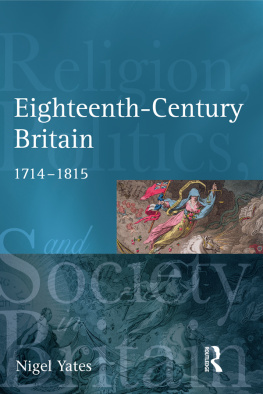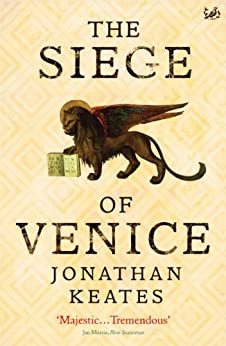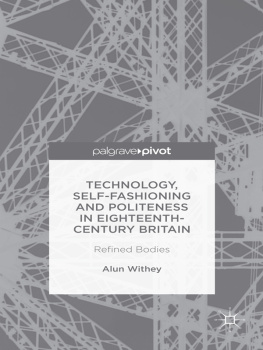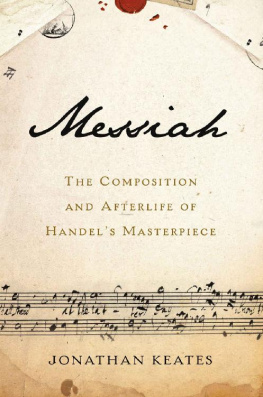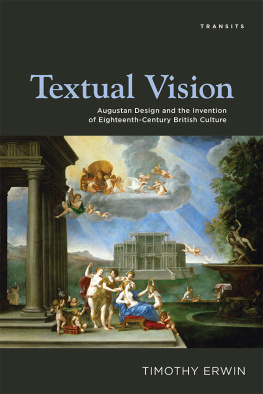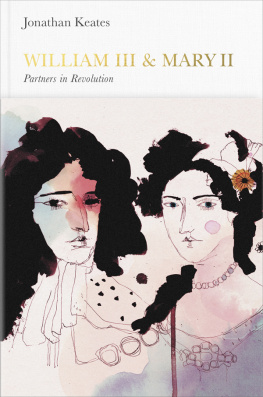Keates Timothy - Music as a science of mankind in eighteenth-century Britain
Here you can read online Keates Timothy - Music as a science of mankind in eighteenth-century Britain full text of the book (entire story) in english for free. Download pdf and epub, get meaning, cover and reviews about this ebook. City: Great Britain., year: 2016, publisher: Routledge, genre: Art. Description of the work, (preface) as well as reviews are available. Best literature library LitArk.com created for fans of good reading and offers a wide selection of genres:
Romance novel
Science fiction
Adventure
Detective
Science
History
Home and family
Prose
Art
Politics
Computer
Non-fiction
Religion
Business
Children
Humor
Choose a favorite category and find really read worthwhile books. Enjoy immersion in the world of imagination, feel the emotions of the characters or learn something new for yourself, make an fascinating discovery.

- Book:Music as a science of mankind in eighteenth-century Britain
- Author:
- Publisher:Routledge
- Genre:
- Year:2016
- City:Great Britain.
- Rating:3 / 5
- Favourites:Add to favourites
- Your mark:
- 60
- 1
- 2
- 3
- 4
- 5
Music as a science of mankind in eighteenth-century Britain: summary, description and annotation
We offer to read an annotation, description, summary or preface (depends on what the author of the book "Music as a science of mankind in eighteenth-century Britain" wrote himself). If you haven't found the necessary information about the book — write in the comments, we will try to find it.
Music as a science of mankind in eighteenth-century Britain — read online for free the complete book (whole text) full work
Below is the text of the book, divided by pages. System saving the place of the last page read, allows you to conveniently read the book "Music as a science of mankind in eighteenth-century Britain" online for free, without having to search again every time where you left off. Put a bookmark, and you can go to the page where you finished reading at any time.
Font size:
Interval:
Bookmark:
My work on this project began with a doctoral dissertation at the University of Bologna in Italy, a study that greatly benefited from the guidance of Tom Dixon, Paolo Gozza and Antonio Serravezza. I also wish to express my gratitude to Lorenzo Bianconi, who at that stage read and commented on some chapters. Invaluable advice came from Penelope Gouk, who read some parts of the book and supported my proposal from the very beginning.
I gratefully acknowledge the assistance of the staff of the library of the Dipartimento di Musica e Spettacolo (University of Bologna), in particular Angela Capelli, who granted me the possibility of unlimited book borrowing. The resources of the British Library have been of inestimable value to me throughout the work. My thanks go also to the National Gallery, which granted me permission to use a picture from their collection. Readers for Ashgate Publishing made many helpful suggestions. To Timothy Keates I owe a particular debt of gratitude for translating the whole work from Italian into English. Financial support came mostly from the University of Bologna, with a PhD scholarship at the beginning of my studies on this subject, and subsequently with a research Fellowship. A final, special, thank you goes again to Paolo Gozza, who with endless kindness and considerable patience encouraged me along this uneven path.
Maria Semi
Bologna, Italy
Aristotle, Poetics, in Aristotle on Poetry and Style, trans. G. M. A. Grube (New York: Liberal Arts Press, 1958).
, Politics, ed. H. Rackham (London and Cambridge, MA, 1959).
, Problems, ed. W. S. Hett (London and Cambridge, MA, 1961).
Epictetus, The Discourses, as reported by Arrian, the Manual, and Fragments, trans. W. A. Oldfather (London and Cambridge, MA: Harvard University Press, 1959-1961).
Horace, The Satires and Epistles of Horace: A Modern English Verse Translation, trans. Smith Palmer Bovie (Chicago: University of Chicago Press, 2002 [1959]).
Addison, Joseph, The Works of the Right Honourable Joseph Addison, ed. Richard Hurd (6 vols, London: G. Bell & Sons, 1889).
Alison, Archibald, Essays on the Nature and Principles of Taste (Edinburgh, 1790).
Armstrong, John, The Art of Preserving Health (London, 1744).
, Sketches: or Essays on Various Subjects (London, 1758.)
Avison, Charles, An Essay on Musical Expression (London, 1752); anastatic reprint of the edition of 1753 (New York: Broude, 1967); also Charles Avisons Essay on Musical Expression: with related writings by William Hayes and Charles Avison, ed. Pierre Dubois (Burlington: Ashgate, 2004).
Bacon, Francis, Sir, Of the Proficience and Advancement of Learning (London, 1605).
, Sylva Sylvarum (London, 1626),
, The Wisedome of the Ancients, trans. Sir Arthur George (London, 1619).
Batteux, Charles, Les Beaux Arts rduits un mme principe (Paris, 1746).
Beattie, James, An Essay on Poetry and Music, as they affect the Mind (Edinburgh, 1776); reprinted in The Philosophical and Critical Works of James Beattie, Vol. I, Essays, ed. B. Fabian (Hildesheim and New York: Olms, 1975).
Berkeley, George, The Works of George Berkeley Bishop of Cloyne, Vol. viii Letters, ed. A. A. Luce and T. E. Jessop (London: Thomas Nelson and Sons, 1964 [1956]).
Bisse, Thomas, Musick the Delight of the Sons of Men. A Sermon Preached at the Cathedral Church of Hereford, at the Anniversary Meeting of the Three Choirs, Gloucester, Worcester, Hereford, September 7, 1726 (London, 1726).
Blair, Hugh, Lectures on Rethoric and Belles Lettres (London, 1783).
Bonnet, Pierre and Bourdelot, Pierre, Histoire de la Musique et ses Effets (Paris, 1715).
Brocklesby, Richard, Reflections on Antient and Modern Musick (London, 1749).
Brown, John, Rev., A Dissertation on the Rise, Union, and Power, the Progressions, Separations, and Corruptions, of Poetry and Music (London, 1763).
Browne, Richard, Medicina Musica; or, a Mechanical Essay on the Effects of Singing, Musick, and Dancing, on Human Bodies (London, 1729).
Burke, Edmund, A Philosophical Enquiry into the Origin of our Ideas of the Sublime and Beautiful (London, 1757).
Burney, Charles, A general History of Music, from the earliest Ages to the present Period (London, 1776-1789); with critical and historical notes by Frank Mercer (2 vols, New York: Dover [1935] 1957).
Coleire, Richard, The Antiquity and Usefulness of Instrumental Musick in the Service of God (London, 1738).
Collier, Jeremy, A Short View of the Immorality, and Profaneness of the English Stage (London, 1698); anastatic reprint of the edition of 1730 (Hildesheim: Georg Olms Verlag, 1969).
Cooper, John Gilbert, Letters concerning taste (London, 1755).
Dennis, John, The Impartial Critick: or, some Observations upon a Late Book, entituled, A Short View of Tragedy, written by Mr Rymer (London, 1693).
, The Usefulness of the Stage (London, 1698).
, An Essay on the Operas after the Italian Manner, which are about to be establishd on the English Stage: with some Reflections upon the Damage which they may bring to the Publick (London, 1706).
, An Essay upon Publick Spirit (London, 1711).
Descartes, Ren, Compendium Musicae, (Trajecti ad Rhenum, 1650); Abrg de musique, ed. F. De Buzon (Paris: PUF, 1987).
Donaldson, John, Principles of Taste (Edinburgh, 1786).
Du Bos, Jean-Baptiste, Critical Reflections on Poetry, Painting and Music, with an Inquiry into the Rise and Progress of the Theatrical Entertainments of the Ancients, trans. Thomas Nugent (London, 1748).
Eastcott, Richard, Sketches of the origin, progress and effects of music, with an account of the ancient bards and minstrels (Bath, 1793).
Euterpe; or Remarks on the Use and Abuse of Music as a part of Modern Education (London, 1778).
Ferguson, Adam, Principles of Moral and Political Science (Edinburgh: W. Creech; London: Printed for A. Strahan and T. Cadell, 1792).
Gerard, Alexander, Essay on Taste (Edinburgh, 1759); ed. W. J. Hipple Jr. (New York: Delmar, 1978; reprint of the third edition, London, 1780).
Goldsmith, Oliver, The Bee, being Essays on the Most Interesting Subjects (London, 1759).
Gregory, John, A comparative View of the State and Faculties of Man with those of the animal World (London, 1765).
Harper, John, The natural Efficacy of Musick to prepare the Mind for good Impressions: A Sermon (London, 1730).
Harris, James, Three Treatises (London, 1744); in The Works of James Harris (2 vols, Bristol: Thoemmes Press, 2003; facsimile of the London: F. Wingrave, 1801 edition).
Hartley, David, Observations Upon Man, his Frame, his Duty and his Expectations (London, 1749).
Hawkins, John, Sir, An account of the institution and progress of the Academy of Ancient Music (London, 1770).
, A General History of the Science and Practice of Music (London, 1776); facsimile (Graz: Akademische Druck, 1969; reprint of the London 1875 edition).
Hayes, William, Remarks on the Essay on Musical Expression (London, 1753).
, Anecdotes of the five music-meetings, on account of the charitable foundations at Church Langton (Oxford, 1768).
Henry, Robert, History of Great Britain
Font size:
Interval:
Bookmark:
Similar books «Music as a science of mankind in eighteenth-century Britain»
Look at similar books to Music as a science of mankind in eighteenth-century Britain. We have selected literature similar in name and meaning in the hope of providing readers with more options to find new, interesting, not yet read works.
Discussion, reviews of the book Music as a science of mankind in eighteenth-century Britain and just readers' own opinions. Leave your comments, write what you think about the work, its meaning or the main characters. Specify what exactly you liked and what you didn't like, and why you think so.

